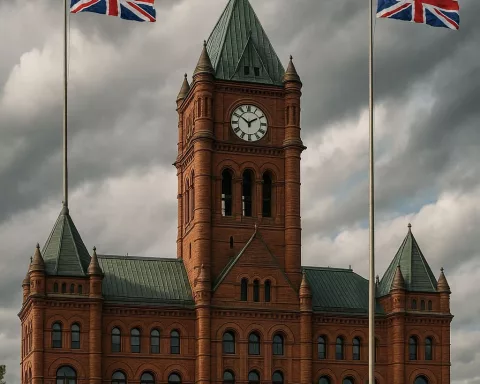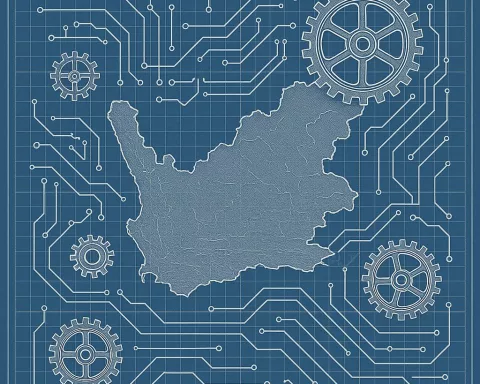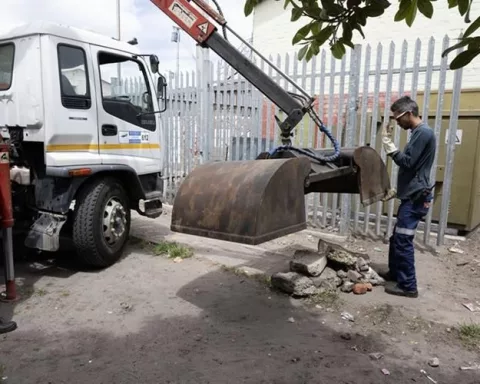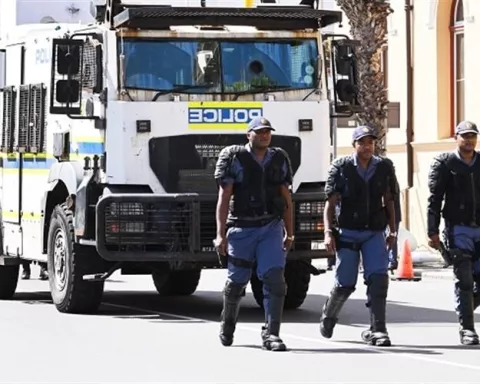Cape Town’s ‘Invested in Hope’ Budget for 2025/26 is a big plan to help the city and its people. With R39.7 billion set aside, the budget focuses on making essential services like water and electricity more affordable for lower-income families. Mayor Geordin Hill-Lewis shared this vision on a sunny morning, aiming to improve community safety by adding more police officers and reshaping the city’s infrastructure. While some celebrate these changes, others express concerns about added costs and the need for better crime prevention. Overall, this budget hopes to pave the way for a brighter future for all Cape Town residents.
What is Cape Town’s ‘Invested in Hope’ Budget?
Cape Town’s ‘Invested in Hope’ Budget for 2025/26 allocates R39.7 billion for infrastructure and tariff reforms, focusing on reducing costs for lower-income households. Key initiatives include restructuring water and electricity tariffs and enhancing community safety through increased metro policing, aiming for a more equitable future.
Unveiling an Ambitious Financial Plan
A bright Thursday morning in Cape Town saw the grand City Hall brimming with anticipation. Mayor Geordin Hill-Lewis, a figure known for his blend of charisma and controversy, took to the stage to present the City’s draft budget for 2025/26. Dubbed the ‘Invested in Hope’ Budget, this financial proposal aspires to navigate current economic challenges and ease the burden on the city’s residents. Combining historic investment with modern reforms, the plan seeks to balance hope and pragmatism by considering both historical precedents and contemporary requirements.
The cornerstone of this budget is its unprecedented infrastructure investment. With a staggering R39.7 billion allocated over three years, this investment surpasses the combined infrastructure budgets of all three Gauteng metros. Drawing inspiration from transformative urban projects of the 19th century, like Haussmann’s renovations in Paris, Hill-Lewis aims to reshape Cape Town’s landscape and elevate residents’ quality of life. Notably, 75% of the budget is dedicated to tariff restructuring reforms designed to provide relief to lower-income households.
Infrastructure Investment and Tariff Reforms
The scope and ambition of this infrastructure investment are reminiscent of socio-economic reforms from the Progressive Era in the United States, which aimed to address the inequalities of the industrial age. The new budget proposes a restructuring of water and sanitation charges, basing them on property value rather than connection size. This adjustment intends to reduce the financial load on lower-income residents, marking a significant shift in how public utilities cater to the diverse socio-economic realities of modern urban life.
Another key focus is electricity tariffs, where the budget aims to mitigate the impact of rising costs. While Eskom’s municipal electricity tariff increase stands at a hefty 11.32%, Cape Town residents will experience a more modest 2% average increase. This is achieved by scrapping the 10% contribution to other service delivery costs that were previously included in the electricity rates. Such strategic financial planning is designed to protect vulnerable populations from rising costs while maintaining fiscal responsibility. This approach can be likened to the New Deal policies of the 1930s, which sought to alleviate the worst effects of the Great Depression through targeted governmental intervention.
The City also continues to support Lifeline electricity customers by raising the threshold for subsidized electricity purchases from 350 to 600 units per month, a policy initiated in 2023 and maintained in the new budget. Those consuming up to 600 units will pay rates similar to those three years ago. Furthermore, Lifeline customers will remain exempt from fixed charges, whereas those on the Domestic Tariff will face a proposed fixed monthly fee of R59.90 to support electricity services. Despite this fee, their overall increase will be significantly lower at 5%, compared to Eskom’s 11.32% hike.
Enhancing Community Safety and Fiscal Prudence
In a move that could be described as cinematic in its boldness, the budget proposes a substantial expansion of metro policing. Over 500 new officers will be deployed across Cape Town, adding to the 400 officers introduced since the beginning of the current municipal term. This expansion aims to enhance community safety and law enforcement capabilities. Drawing comparisons to the establishment of modern police forces in the late 19th century, which aimed to bring order to burgeoning urban areas, today’s strategy requires not just an increase in personnel but also a nuanced approach to crime prevention and community relations.
Regarding property rates, Cape Town triumphs in maintaining the lowest rates among South Africa’s metros when measured using the rate-in-the-rand formula. Despite a planned 7.96% increase next year, the city’s property rates will still be lower than the current 2024 levels in other metropolitan areas. This increase, slightly above inflation projections, is intended to fund record infrastructure investments, solidifying Cape Town’s vision as the ‘City of Hope for all.’ This fiscal prudence aligns with the principles of responsible government spending to foster sustainable economic growth.
The budget also outlines a 7.36% annual increase in refuse removal fees to ensure sustainable waste management services for both formal and informal settlements. Starting in July, residents will see a City-Wide Cleaning Tariff itemized on their bills. This charge, previously covered through property rates, will now be offset by reductions in electricity costs allocated to other service delivery functions. This move reflects a broader trend towards greater transparency and accountability in urban management.
Critiques and Challenges Ahead
Mayor Hill-Lewis describes the ‘Invested in Hope’ Budget as a transformative step forward for Cape Town, combining financial prudence with targeted investments to improve service delivery and residents’ quality of life. However, not all voices are in agreement. GOOD City of Cape Town Councillor Anton Louw provides a critical perspective, arguing that the budget’s various new fixed charges expose a double standard by the DA. Louw points out that while the DA opposes surcharges in Gauteng, it imposes additional costs on residents in the areas where it governs.
Regarding the City’s tariff strategy, Louw acknowledges the benefit of the 2% increase being lower than Eskom’s approved hike but notes that Cape Town has charged above NERSA-approved tariffs for the past two years. This tempers the perceived relief, highlighting the ongoing tension between policy intentions and practical implications—a dynamic as old as politics itself.
Louw also raises concerns about the DA-led city’s focus on reactive policing rather than preventive measures. This debate mirrors broader discussions in criminology, where experts advocate for shifting from punitive measures to social interventions that tackle the root causes of crime, such as poverty and lack of education.
Moreover, Louw points out the City’s historical underspending of its capital budget. In the previous financial year, the City reportedly underspent R1.6 billion of its capital budget. This discrepancy between budget allocation and actual expenditure underscores systemic challenges in municipal governance, reflecting broader issues of bureaucratic inefficiency and resource management.
A Complex Path Forward
In the unfolding narrative of Cape Town’s financial future, the ‘Invested in Hope’ Budget stands as both a bold vision and a reflection of the intricate dance between ambition and reality, hope and critique. The dynamics shaping Cape Town’s journey forward will echo the timeless interplay of progress and opposition that characterizes urban development history. As the city navigates these complexities, the budget aims to lay a foundation for a more equitable and prosperous future for all its residents.
“`markdown
What is Cape Town’s ‘Invested in Hope’ Budget?
Cape Town’s ‘Invested in Hope’ Budget for 2025/26 allocates R39.7 billion for infrastructure and tariff reforms. The budget focuses on making essential services like water and electricity more affordable for lower-income households and enhancing community safety through increased metro policing.
How will the budget affect water and electricity tariffs?
The budget proposes a restructuring of water and sanitation charges based on property value rather than connection size, aiming to alleviate the financial burden on lower-income residents. Additionally, while Eskom’s electricity tariff will increase by 11.32%, Cape Town residents will see a more modest average increase of 2% due to strategic financial planning.
What safety measures are included in the budget?
The budget includes plans to expand metro policing by deploying over 500 new officers, building on the 400 additional officers introduced in the current municipal term. This initiative aims to enhance community safety and law enforcement capabilities throughout Cape Town.
Will property rates increase?
Yes, the budget plans for a 7.96% increase in property rates next year. However, Cape Town will still maintain the lowest property rates among South Africa’s metros, even with this increase, as the city seeks to fund record infrastructure investments.
What are the critiques surrounding the budget?
Critics, including GOOD City Councillor Anton Louw, argue that the budget imposes new fixed charges and that while the 2% electricity increase is lower than Eskom’s hike, Cape Town has historically charged above NERSA-approved tariffs. Additionally, concerns have been raised about a focus on reactive policing rather than preventive measures.
How does this budget reflect on Cape Town’s future?
The ‘Invested in Hope’ Budget aims to create a more equitable and prosperous future for all residents by combining financial prudence with targeted investments in essential services and community safety. However, it also faces challenges and scrutiny regarding its execution and effectiveness.
“`












